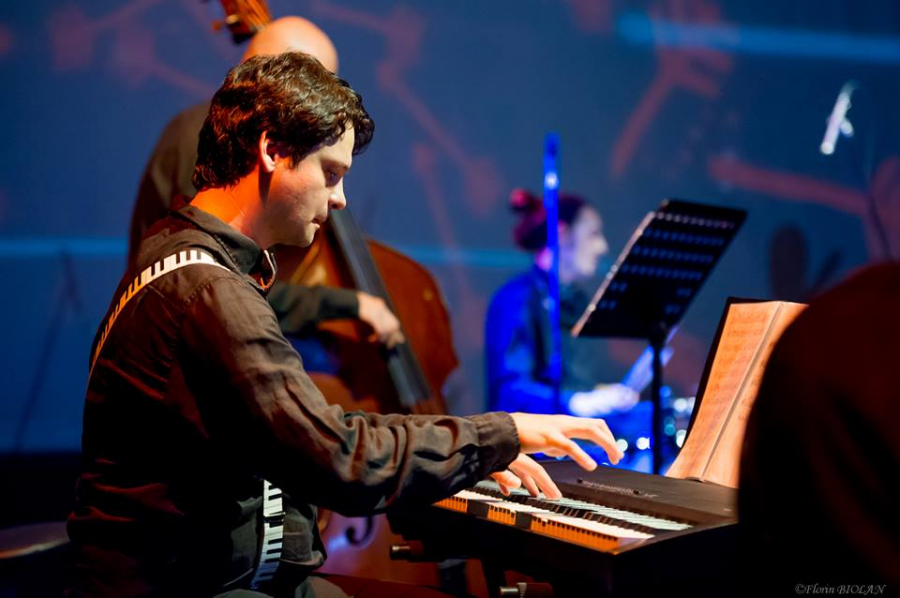
News / Nagyvárad Dance Ensemble 2017.03.06
Asking the Composer
Szigligeti Theatre's newest dance theatre performance Barbarians will premiere this Friday. Its music is composed by well-known contemporary theatre composer Tibor Cári, who talked to us about his work on this show.
What is the performance's music like, what was it that inspired you when composing?
We have worked together with the ensemble and the orchestra last year, on Collisions, already trying to create a new kind of music. This we aimed to take this further, again based on elements of folk music, but creating something new, something special. I think we have already reached our goal in Collisions. This time, we are going beyond, experimenting even more boldly, so that a much more dramatic, much more dynamic music was born.
How much did the original short story influence your work? Or were the choreographers' visions your main guide?
The short story influenced me only in terms of mood, I tried to connect more to the scenes imagined by the director-choreographer. The story itself also served as kind of a starting point, but the choreographers' vision and guidance was much more defining. It was very exciting to me that I had complete freedom, I was free to define the atmosphere of the scenes, the choreographers mostly just suggested emotions to me, or sort of described the dynamics of the music, but the form into which I put that music was practically up to me.
What is the difference between composing music for theatre and jus composing “freely”?
Of course sometimes I compose music for film, or just for myself. Theatrical composing is different from “free creation” in the sense that in this genre, evidently, there are limiting aspects that one has to adapt to. The original work's mood is somewhat defining, but the time for creating the music is also limited, you have a strict deadline by which it must be ready. On the other hand, the existance of these limitations is not necessarily bad, what's more, as an artist, I can confirm that these restrictions inspire and challenge me – sometimes they are markedly beneficial, I can even say I need them.
Please tell us some ideas about the secrets of theatre composing.
When you are composing for stage, there is no time for the music to develop, you have to create something essential immediately. The music needs to have a purpose in a play, it has to express feelings, emotions, moods, sometimes is has to emphasize events that happen on-stage. Music has to play an important role in a performance, sometimes even in itself, but it should never be just a “filling”. This kind of creation is a great challenge.
What kind of instruments are used in this particular show, and why?
The instrument choice was kind of a given, because the orchestra's composition is a given, to which I have added a trombone player and a percussionist, to add to the dynamics and rhythm. A new element was the introduction of a wonderful instrument called a bass clarinet. It is a rarely used instrument with a very special sound, I am really glad we have it.
Besides this, we also use a backing track that adds even more power to the music, it's like we had extended the orchestra with even more members and instruments. All of this makes a very powerful sound.
